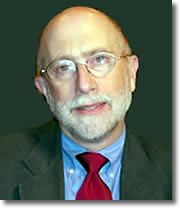Faith from a Jewish Perspective
Faith, and by that I mean one’s ability to access the divine, does not se em to me to occupy the central
place in
Jewish spirituality that it does for Christianity. Sure faith is
important, but acting, or pretending, like you have faith is not only
more
important but, fortunately, something over which most of us have
at least some
control. From a Jewish
perspective, you can’t help what you believe. Sometimes
you do;
sometimes you don’t. (Ask me after the funeral of a child if I believe
in God.) But you can help how you act.
em to me to occupy the central
place in
Jewish spirituality that it does for Christianity. Sure faith is
important, but acting, or pretending, like you have faith is not only
more
important but, fortunately, something over which most of us have
at least some
control. From a Jewish
perspective, you can’t help what you believe. Sometimes
you do;
sometimes you don’t. (Ask me after the funeral of a child if I believe
in God.) But you can help how you act.
This insight tends to make Judaism an overwhelmingly behaviorist tradition. It’s based on the premise that how one acts eventually determines how one comprehends the universe and ultimately what one believes. (“Look at that: I have been giving to charity for thirty years, I must believe in being generous!” etc.) But there’s something more. Because faith, from a Jewish viewpoint, must necessarily come and go, it is rarely understood in simple binary terms: I believe; I don’t believe. Indeed one of my revered professors, the late Dr. Samuel Sandmel, used to warn us in his southern drawl, “Gentlemen [in those days it was only men], if you don’t seriously doubt the existence of God every few weeks, you are theologically comatose.” The result of this approach is a spectrum running from perfect faith (which hardly anyone has for more than a short time) to no faith (which, alas, is true for most of us all too often) but, and this is the key, also includes a vast spectrum in between. You could call it faith states of proximity and distance.
I once led a
discussion with a dozen Jewish adolescents. I asked
them if they believed in
God, figuring I’d get an even split and a good
discussion. But, to my chagrin,
they all said, no. I was crushed,
devastated. I remember thinking, “So it’s come
to this: three thousand
years of piety and struggle for a bunch of obnoxious,
suburban teen-age
brats who don’t believe in God!” I did the pedagogic
equivalent of
dropping back a few yards to punt and changed the topic. Fifteen
minutes later, however, it occurred to me to ask a similar question.
“By the
way,” I said, “how many of you have been close to God.” And, so
help me God,
every one of them raised his or her hand. Curious, I
pushed on. “Tell me when.”
And, one by one, they ticked off a Jewish
experience of faith: “Last night when
my mother lit the Sabbath candles
and she got that teary look in her eyes, I was
close”; “Last year, when
my grandfather died, I was very sad, but I felt close”;
“Last week, my
father wanted me to help him and I didn’t feel like it, but I
helped
him anyway.”
We Jews drift back and forth between proximity to
God and feeling distant. We rarely have moments of unquestioning
intimacy nor,
thank God, moments of certain atheism. We are near; we
are far; but most of the
time, we are somewhere in between. Always in
motion. Wondering about how our
behavior affects our faith this week,
this day, this hour. So it goes.
Copyright ©2004 Rabbi Lawrence Kushner